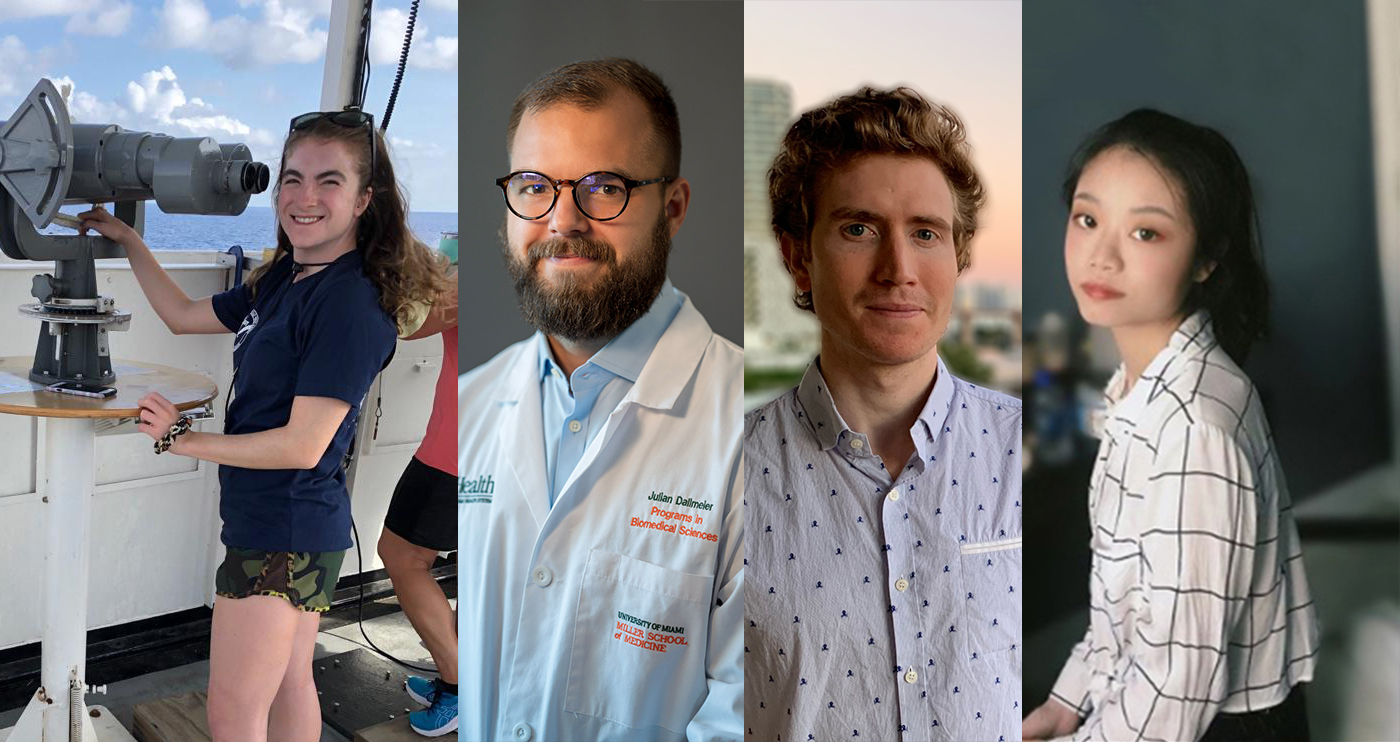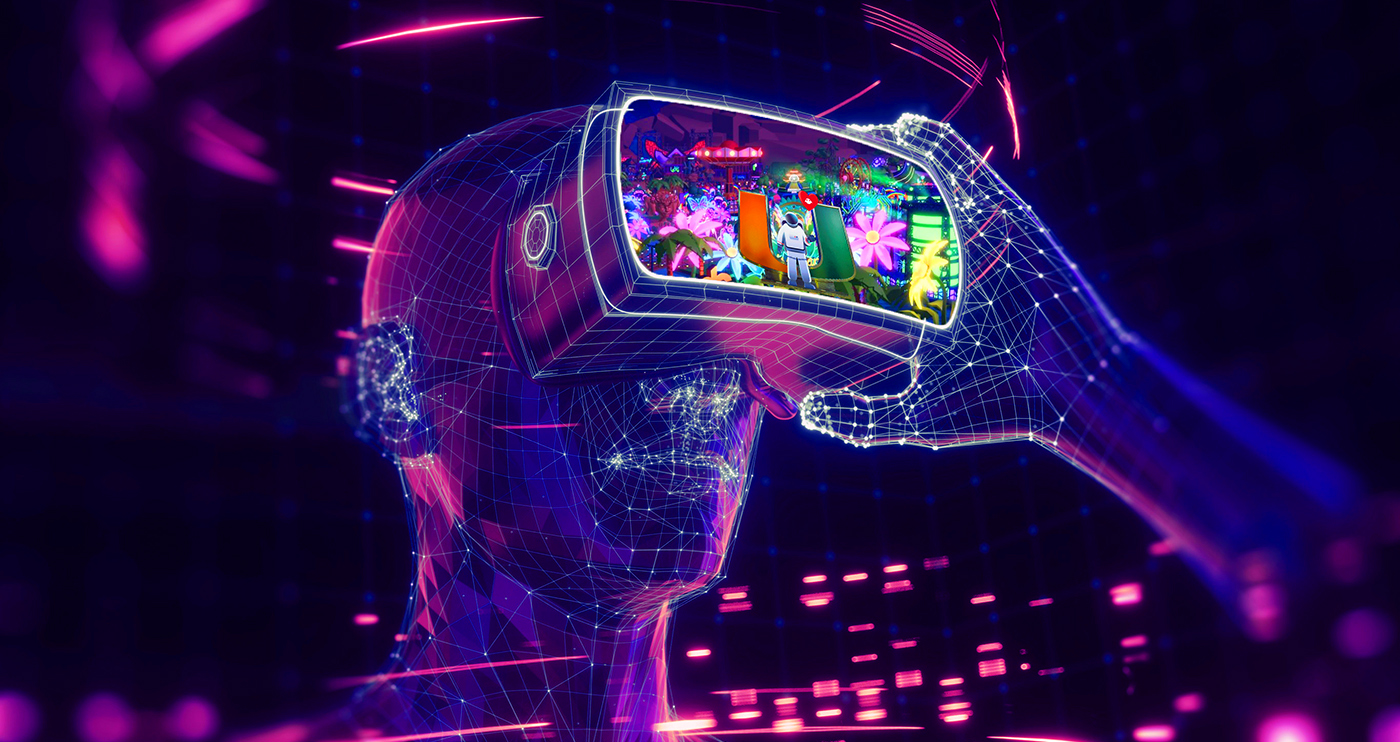From improving services to managing risks and creating new revenue streams, advanced technologies are reshaping the South Florida landscape for businesses, governments, and academic institutions, while increasing the need for a data-literate workforce.
 Both the opportunities and challenges posed by big data, artificial intelligence (AI), and extended reality (XR) technologies were highlighted by speakers at the University of Miami’s 6th annual Big Data Conference on December 9, co-hosted by the University of Miami Institute for Data Science and Computing (IDSC) and the Miami Herbert Business School.
Both the opportunities and challenges posed by big data, artificial intelligence (AI), and extended reality (XR) technologies were highlighted by speakers at the University of Miami’s 6th annual Big Data Conference on December 9, co-hosted by the University of Miami Institute for Data Science and Computing (IDSC) and the Miami Herbert Business School.
“The Big Data Conference focused on how business and analytics and data science have been affected by the COVID pandemic and the future of big data in the post-COVID world,” said Mitsu Ogihara, PhD, Professor, Department of Computer Science, and Director of IDSC Workforce Development and Education, who welcomed attendees to the virtual event.
 Nick Tsinoremas, UM Vice Provost for Research Computing and Data and IDSC Founding Director, said the Conference provided valuable insights into fields as diverse as health care, banking, manufacturing, and government services. “Our speakers explored how leading-edge technology is supporting their organizational goals while contributing to South Florida’s future,” he said.
Nick Tsinoremas, UM Vice Provost for Research Computing and Data and IDSC Founding Director, said the Conference provided valuable insights into fields as diverse as health care, banking, manufacturing, and government services. “Our speakers explored how leading-edge technology is supporting their organizational goals while contributing to South Florida’s future,” he said.
Here is a closer look at the Big Data Conference sessions:
Manufacturing Enters the Metaverse
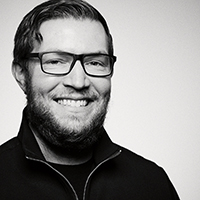 In today’s digital world, data is the “new water,” according to keynote speaker Dr. Michael Mylrea. “Like water, we need data for survival, and while the Earth’s surface is covered by water, only a small amount can be consumed.” A Senior Distinguished Engineer at Resilience and IDSC Distinguished Fellow for Industrial Cybersecurity, Mylrea spoke on “Manufacturing in the Metaverse: From Digital Twins to Distributed Ledgers of Vulnerable Things in an Era of Pandemic and Cyberwar.”
In today’s digital world, data is the “new water,” according to keynote speaker Dr. Michael Mylrea. “Like water, we need data for survival, and while the Earth’s surface is covered by water, only a small amount can be consumed.” A Senior Distinguished Engineer at Resilience and IDSC Distinguished Fellow for Industrial Cybersecurity, Mylrea spoke on “Manufacturing in the Metaverse: From Digital Twins to Distributed Ledgers of Vulnerable Things in an Era of Pandemic and Cyberwar.”
“Our relationship with data has changed in the last two years,” said Mylrea. “The pandemic expedited our digital transformation in ways we didn’t anticipate, increasing the volume, variety, and velocity of data. Now, matters of life and death, poverty and prosperity are increasingly driven by data, and we need to examine what this means for our economy.”
Mylrea said digital is the fourth revolution (4.0) for the manufacturing sector, after mechanical (1.0), electrical (2.0), and Internet (3.0). “By automating complex tasks and empowering people, the digital revolution will have 10 times the impact of the Internet,” he predicted. However, the challenges in gaining the benefits of the new digital age include pulling insights from the massive volume of data, sharing the data through interoperability solutions, storing the data, and transforming data into knowledge and wisdom, he said.
Along with the exponentially growing data sets generated by sensors and devices connected to the Internet of things (IoT), Mylrea said the digital revolution is blurring the physical and cyber aspects of reality. One example is the digital twin—a dynamic virtual representation of a physical object or process. “Digital twins can improve scale and outcomes around manufacturing, incorporating technologies like the IoT and the metaverse with augmented reality (AR), virtual reality (VR). and extended reality (XR).”
Another dynamic aspect of the digital age is the growth of blockchain, a distributed database or digital ledger that records transactions of value. “Blockchain won’t replace our traditional economy but it will displace current centralized models, he said. Financial services tech is an early adopter, he added, predicting that the energy sector would also turn to blockchain to incorporate distributed resources into the utility grid.
“Two of the challenges in front of us are cybersecurity and privacy,” he said. “The platforms that transform data allow the monetization of data to deliver new services and insights. But it’s much harder to secure that data. We can’t just build walls and moats to keep adversaries out. We need to be able to detect and neutralize attackers in real time, and limit the damage if they get inside our networks.”
One security solution involves building a digital twin for a physical system and comparing the two to detect anomalies on the digital side, Mylrea said. “It’s very difficult to change a physical process, so this could have important applications in manufacturing and other industries.”
As for privacy, Mylrea pointed to the value of “zero-knowledge proofs,” which allow professionals to gain insights from big data without revealing personal identifiable information (PII). This ability to share data could allow researchers to find new insights into patient care while protecting individual privacy. Noting that genetic and biological data are moving into the commercial sector, Mylrea warned, “We need guardrails to keep us ethical and safe because we don’t have precedents in these fields,” he said.
Finally, Mylrea pointed to the importance of human involvement in applying big data, AI, and other digital tools. “We need a diverse and inclusive multidisciplinary workforce to respond to the challenges with solutions that rely on people. As we explore big data, we can’t forget about the human components.”
Big Data Changing the Banking Industry
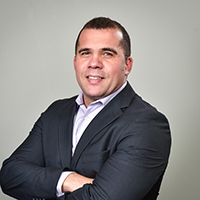 Big data is changing the financial services sector, creating new opportunities as well as challenges for banking professionals, according to Alex Moura, MBA (2005), Vice President, Insights and Analytics, Advisors Product Management, Mastercard. “In the past, a bank was a safe building where you kept your valuables,” he said. “Now, it’s all about going online and looking at your options in the app store, although you can’t open a bank account over the Internet.” Moura, who spoke on “Big Data in Banking: How the Data and AI Revolution is Changing Financial Services,” was introduced by Joseph Johnson, PhD, Associate Professor of Marketing at Miami Herbert Business School. “It’s an honor to be here today, as UM is a big part of my life,” Moura said.
Big data is changing the financial services sector, creating new opportunities as well as challenges for banking professionals, according to Alex Moura, MBA (2005), Vice President, Insights and Analytics, Advisors Product Management, Mastercard. “In the past, a bank was a safe building where you kept your valuables,” he said. “Now, it’s all about going online and looking at your options in the app store, although you can’t open a bank account over the Internet.” Moura, who spoke on “Big Data in Banking: How the Data and AI Revolution is Changing Financial Services,” was introduced by Joseph Johnson, PhD, Associate Professor of Marketing at Miami Herbert Business School. “It’s an honor to be here today, as UM is a big part of my life,” Moura said.
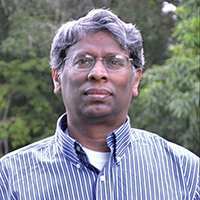 In his talk, Moura highlighted the major technology evolutions of the last 25 years, including broadband, smartphones, APIs (the building blocks for application development), social media, the cloud, and AR/VR. “All these innovations are generating big data,” he said. “But we need to think about what data we need, as well as the quality or veracity of the data.”
In his talk, Moura highlighted the major technology evolutions of the last 25 years, including broadband, smartphones, APIs (the building blocks for application development), social media, the cloud, and AR/VR. “All these innovations are generating big data,” he said. “But we need to think about what data we need, as well as the quality or veracity of the data.”
Before digging into the data, IT professionals and business leaders should first consider the potential value of the project. “Before doing the analysis, ask your team, ‘If we find an insight, how can we gain value from the results?’ Will it help us deliver better service, decrease costs or operate more efficiently?” said Moura. “If the answer is yes, then you can move forward.”
Moura said risk management is one of the top applications of big data and AI in financial services. “Tech tools are continually being refined to identify fraudulent actions and address them in real time,” he said. As for opportunities, big data applications can reduce the risk of opening an account for someone without a credit history. “By using alternate sources of data, you can see if a consumer who is not in the banking system will still be able to pay back a loan. That can be a more inclusive approach to serving consumers.”
Other IT applications in banking include targeted marketing, authentication and identity, operational optimization, and customer service. “Automated responses like bots can help customer service, especially when they provide a warm handover to human agents,” he said.
As for challenges, Moura said the wide range of technology options can make it difficult for banks to determine the best path forward. Governance is another issue, as new applications must fit into the regulatory framework. Meanwhile, consumers need to be educated about issues related to their personal data. “That is something we should teach in elementary school,” he added.
Echoing a theme from other conference participants, Moura said colleges and universities should address the shortage of skilled professionals. “Today, there is high demand for analytical skills in business, government, and other institutions,” he said. “There has never been a better time to pursue a career in data.”
Technology is Transforming South Florida’s Public, Private, and Academic Sectors
Academic, commercial, and government partnerships can help South Florida institutions capitalize on the many benefits of the digital revolution. IDSC Director Nick Tsinoremas delivered that message in moderating a panel discussion on “Transformation of Institutions, Industries, and Government by Big Data, AI, and Extended Reality (XR) Technologies.”
Panelists were:
- Lt. Joel Bello, Miami-Dade County Police Department, Homeland Security Bureau
- Diego Berta, Vice President, Business Development, Magic Leap
- Margaret Brisbane, CIO/Director, Miami-Dade County Information Technology Department
- Matthew Denesuk, PhD, Senior Vice President, Data Analytics and AI, Royal Caribbean Cruises, Ltd.
- Rodolphe el-Khoury, PhD, Dean, School of Architecture, and Director, IDSC Smart Cities program
- Arthur Kordon, CEO, Kordon Consulting, LLC
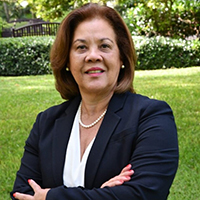 “Our goal is to discuss how these technologies are being applied in the public sector, and by large companies and startups,” Tsinoremas said, before asking the first question, “How has the digital revolution transformed your organization.”
“Our goal is to discuss how these technologies are being applied in the public sector, and by large companies and startups,” Tsinoremas said, before asking the first question, “How has the digital revolution transformed your organization.”
Margaret Brisbane cited Miami-Dade’s Peace and Prosperity program as an example of how the county is using big data to positively impact the lives of youth. “We are looking at data from the U.S. Census, social services, and other sources to see where we can provide more opportunities in our park system,” she said.
Brisbane also emphasized the importance of sharing data among municipal governments and academic institutions in order to provide “smarter government” for all citizen. After the tragic Surfside condominium collapse on June 24, the County brought in a team from Florida State University that used drones with thermal sensing equipment to help first responders. “There is tremendous value in building relationships with business and academic institutions,” she said.
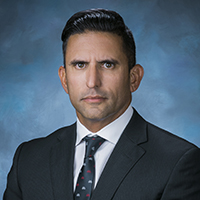 From the police perspective, Lt. Joel Bello said current crime-fighting systems are good for solving individual problems, but greater interoperability is needed to speed responses to various situations. “We need to leverage AI to link up our different systems, especially in dealing with active threats,” he said.
From the police perspective, Lt. Joel Bello said current crime-fighting systems are good for solving individual problems, but greater interoperability is needed to speed responses to various situations. “We need to leverage AI to link up our different systems, especially in dealing with active threats,” he said.
As a leader in AR, VR and XR technology, Magic Leap is driving new ways for humans to interact with technology, according to Berta. “The next wave will be spatial computing, using XR tools,” he said. For instance, automotive designers and architects can interact digitally with engineers and consumers before building physical models. “The next wave of innovation will allow us to immerse ourselves into digital models, and once the workforce experiences this new way of doing things there won’t be any going back.”
 Arthur Kordon said his manufacturing clients are using big data and AI tools for better forecasting and decision-making. However, unexpected events like the COVID pandemic can leave businesses in uncharted territory. “With COVID, they couldn’t train models in the classical way with machine learning or through simulations. So, we need to think about how to make decisions when we don’t have any data available.”
Arthur Kordon said his manufacturing clients are using big data and AI tools for better forecasting and decision-making. However, unexpected events like the COVID pandemic can leave businesses in uncharted territory. “With COVID, they couldn’t train models in the classical way with machine learning or through simulations. So, we need to think about how to make decisions when we don’t have any data available.”
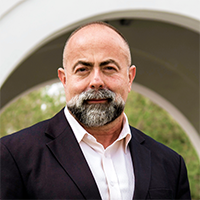 From an architectural perspective, Dean Rodolphe el-Khoury said big data and AI can transform the built environment, including homes, commercial buildings, neighborhoods and smart cities. “A new house with a voice-command system and other devices produces a stream of valuable data,” he said. “A developer could make a small profit on the sale, while investing in the business of data. Now with COVID, homes will generate even more data than before.”
From an architectural perspective, Dean Rodolphe el-Khoury said big data and AI can transform the built environment, including homes, commercial buildings, neighborhoods and smart cities. “A new house with a voice-command system and other devices produces a stream of valuable data,” he said. “A developer could make a small profit on the sale, while investing in the business of data. Now with COVID, homes will generate even more data than before.”
Royal Caribbean Cruises draws on data in every aspect of its operations, according to Matthew Denesuk. That includes automating the check-in process, optimizing settings for guest rooms, and removing friction from passenger experiences. “The key enabler is connectivity,” he added. “That is a limiting step in digital/AI transformation, rather than the technology itself.”
 Asked about the impact of COVID, Denesuk said their IT team had to make adjustments after global cruise line operations came to a virtual halt in March 2020. “We didn’t have our own data to make decisions, so we brought in knowledge from other domains, such as airlines and hotels. “We also focused on scenario planning due to the continued uncertainty regarding bookings and pricing in the near future.”
Asked about the impact of COVID, Denesuk said their IT team had to make adjustments after global cruise line operations came to a virtual halt in March 2020. “We didn’t have our own data to make decisions, so we brought in knowledge from other domains, such as airlines and hotels. “We also focused on scenario planning due to the continued uncertainty regarding bookings and pricing in the near future.”
Brisbane said the Miami-Dade County government also had to pivot due to COVID, moving the IT team, as well as other departments, into a remote working environment. “The results were very good in terms of productivity and team buildings,” she said. “Now, we are looking at what the county can do to provide a holistic solution to residents with multiple needs, such as meals on wheels or youth programs.”
 Diego Berta said COVID was a catalyst that accelerated the adoption of technology, showing that the benefits of being able to work virtually, depending on industries. He added that change in culture has allowed Magic Leap to engage workers from throughout Florida and beyond.
Diego Berta said COVID was a catalyst that accelerated the adoption of technology, showing that the benefits of being able to work virtually, depending on industries. He added that change in culture has allowed Magic Leap to engage workers from throughout Florida and beyond.
Bello, Kordon, and el-Khoury agreed on the importance of developing a talent pipeline to manage big data and AI tools. That could include short courses, micro credentials and even a subscription model for lifelong learning using university resources said el-Khoury.
Summing up the workforce issue, Kordon said, “We need mass-scale education of citizen data scientists. We also need to educate visionary managers who will be investing in this technology.”
Using Big Data Tools to Prevent Negative Outcomes
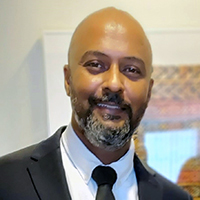 A major South Florida public hospital system is taking an innovative approach to improving the patient experience, clinical outcomes, operational excellence, and financial results. “We believe Innovation is a strategic asset and we want to quantify different events at every step of the patient journey,” said Ashwin Kumar, Associate Vice President, Department of Research, Opportunity, Innovation, and Data Sciences (DROIDS), for Jackson Health System. “Our goal is to shape innovation, rather than be surprised.”
A major South Florida public hospital system is taking an innovative approach to improving the patient experience, clinical outcomes, operational excellence, and financial results. “We believe Innovation is a strategic asset and we want to quantify different events at every step of the patient journey,” said Ashwin Kumar, Associate Vice President, Department of Research, Opportunity, Innovation, and Data Sciences (DROIDS), for Jackson Health System. “Our goal is to shape innovation, rather than be surprised.”
In his talk, Kumar outlined how Jackson has launched its Accelerated Neural Network for Opportunity & Variance Analysis (ANNOVA), a complex cumulative compilation of discrete data points through a patient’s progression of care to predict and prevent negative clinical, operational and financial outcomes.
He noted that public spending on healthcare amounts to almost 20% of the U.S. economy. However, the U.S. is in the middle of the pack among developed countries in terms of outcomes, he said, citing unnecessary, inefficient, overpriced, and wasteful practices. “While there are some amazing technologies out there, they have not been optimized for healthcare,” he said.
At Jackson Health System, the DROID team is creating machine learning tools and models to identify negative outcomes before they happen. Examples include hospital-acquired infections (HAIs), overutilization of physician services, or denial of reimbursement by an insurer. “This is not an easy task because it involves complex data aggregation,” Kumar said. “We are building the architecture, bringing in highly skilled resources, and building third-party intellectual partnerships for accelerating development.”
Asked about advice on launching innovative projects like ANNOVA, Kumar said teams should take a gradual approach. “You should begin with small solutions, and measure the value before presenting to your executive team,” he said. “You want to show the needle has moved as a result of your project in order to get the buy-in from senior management. Then, you can scale things up.”
Story by Richard Westlund
Tags: Advanced Computing, Alex Moura, Arthur Kordon, Ashwin Kumar, Big Data, Big Data Miami, Creative Destruction, cybersecurity, Data Science, Diego Berta, Joel Bello, Joseph Johnson, Margaret Brisbane, Matthew Denesuk, Miami Tech, Michael Mylrea, Mitsunori Ogihara, Nicholas Tsinoremas, Rodolphe el-Khoury, University of Miami
